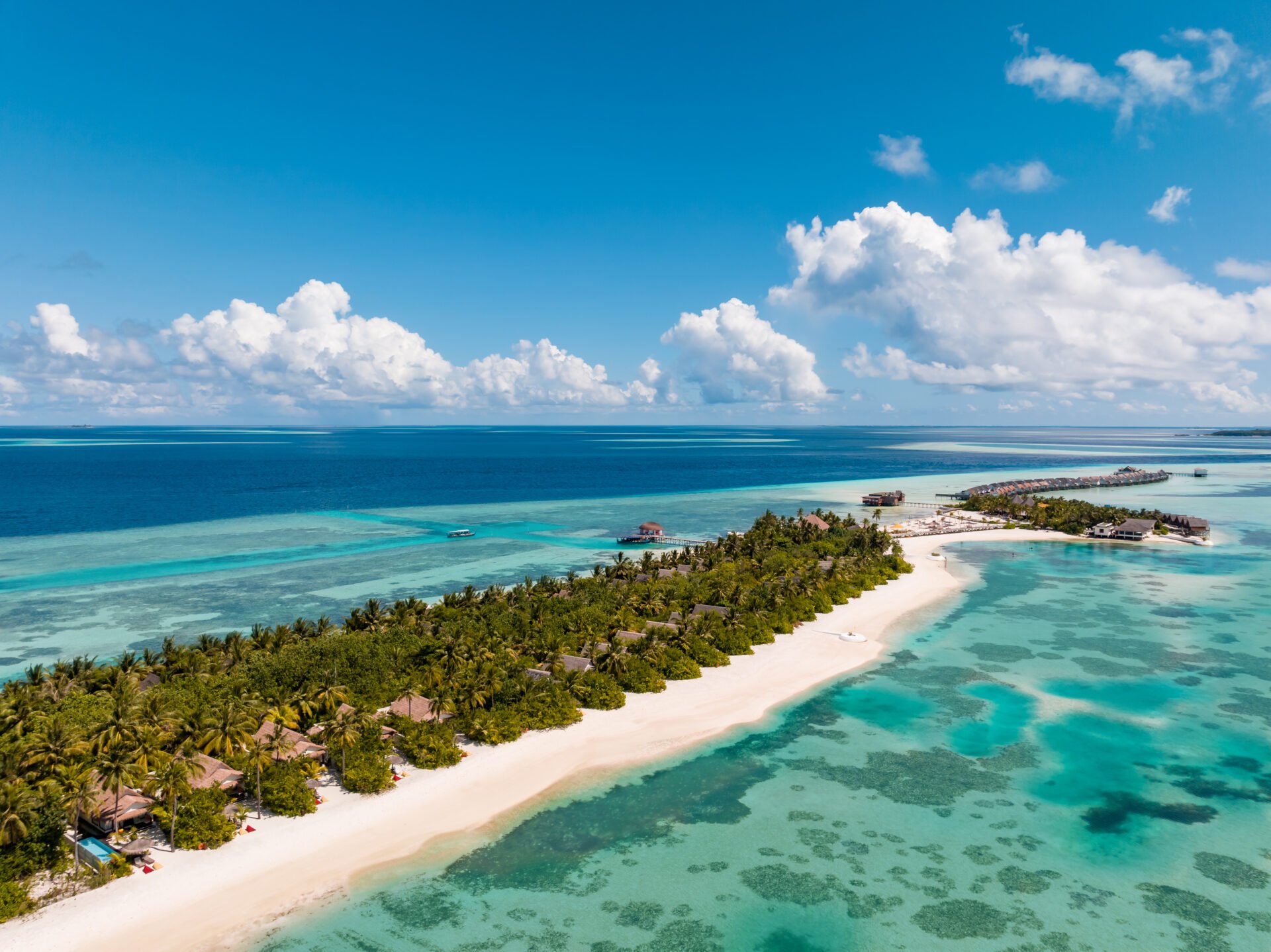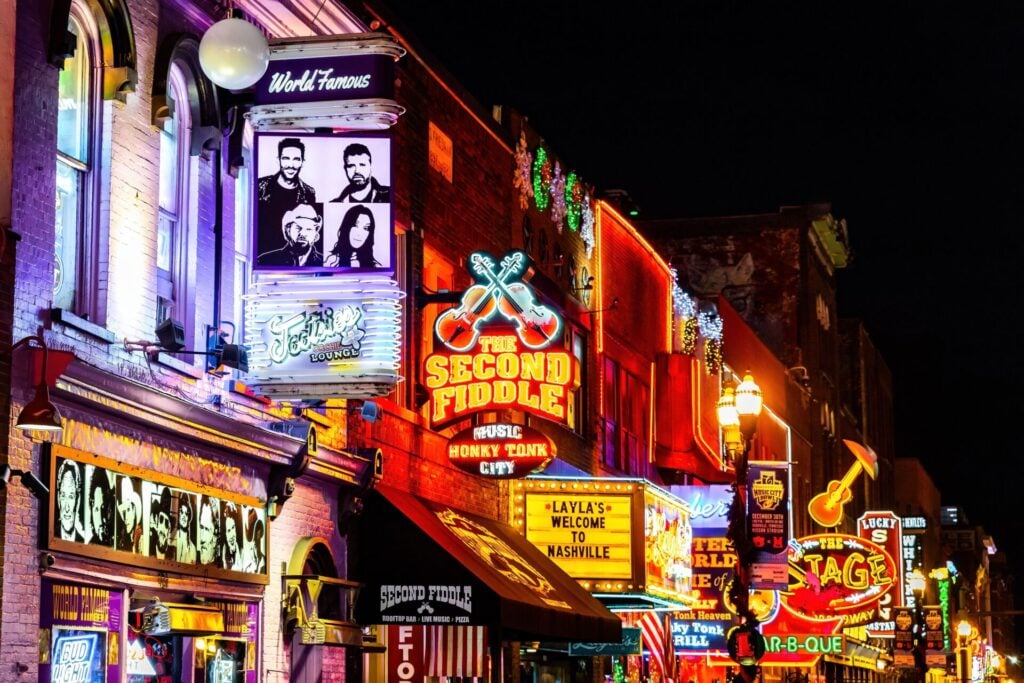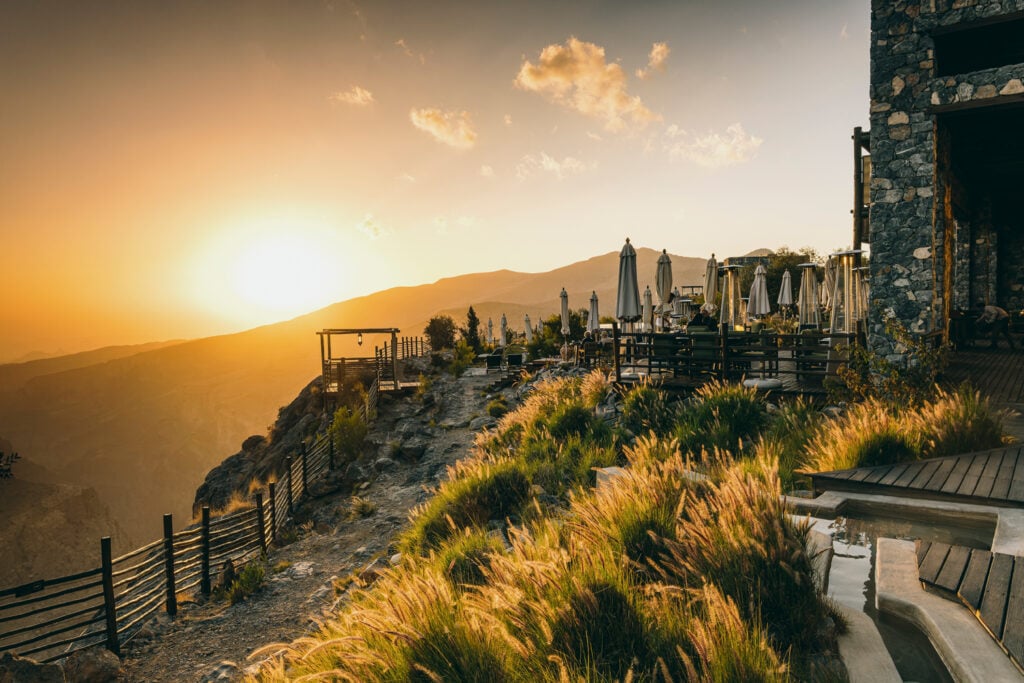Few places on Earth illustrate the fragility of our oceans more starkly than the Maldives. This island nation of 1,192 coral islands scattered across the Indian Ocean is famed for its turquoise lagoons and vibrant reefs, yet these same ecosystems are on the frontlines of climate change. Rising seas threaten to swallow low-lying atolls, while warming waters have triggered mass coral bleaching events; in 2016 alone, up to 70 per cent of the Maldives’ corals were bleached. in 2024 Now, in 2024, the world recorded its fourth global mass bleaching event, with the Maldives reaching NOAA’s – National Oceanic and Atmospheric Administration – Alert Level 1 threshold
The Maldives also faces a significant plastic pollution challenge, generating an estimated 49 kilograms of plastic waste per person each year, one of the highest per capita rates in the region, but driven largely by tourism and limited waste management infrastructure.
The problem of ghost nets in Maldivian waters is also a big issue. Ghost nets drifting across the Indian Ocean entangle turtles, dolphins, and reef sharks, while microplastics infiltrate food chains. A 2023 study published in PLOS ONE found that over a 12-year period (2010–2022), three-quarters of all turtle strandings and injuries in the Maldives were linked to human activity. The single biggest cause was entanglement in ghost fishing gear, responsible for 66 per cent of cases. Olive Ridley turtles were the most frequently affected, but Hawksbill and Green turtles were also found in the drifting nets.
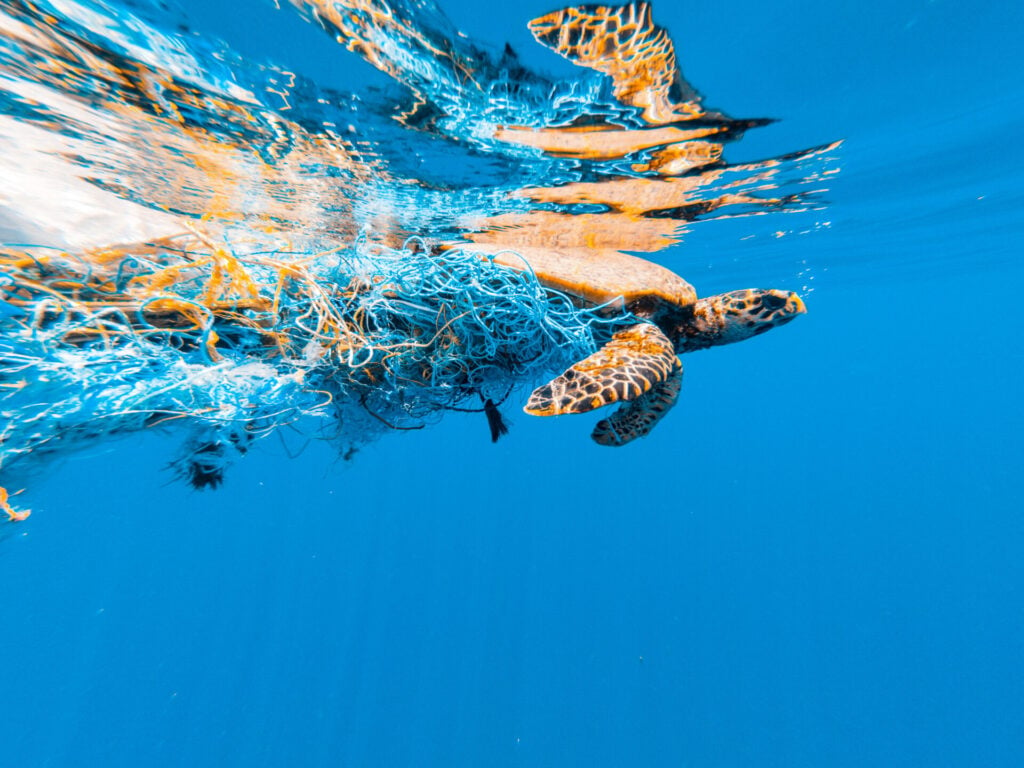
And yet, there is hope. Across the islands, scientists, NGOs, and eco-conscious resorts are proving that regenerative tourism – travel that restores and replenishes ecosystems rather than simply sustaining them – can make a real difference.
‘Tourism has the potential to either be one of the Maldives’ biggest environmental challenges, or its greatest opportunity, Núria Camps Suárez, Marine Biologist at OZEN LIFE MAADHOO tells The Ethicalist. ‘The key lies in making it regenerative, ensuring that every visit gives more back to the environment and community than it takes away.’
Fragile Waters
The Maldives’ waters are both its greatest treasure and its Achilles heel. Coral reefs here are not just a draw for tourists but the very foundation of life: they buffer islands from storms, provide habitat for fish, and support the livelihoods of local communities. But coral reefs are among the most vulnerable ecosystems on the planet. By mid-century, some scientists warn, they could disappear entirely if warming trends continue.
‘The changes are both subtle and profound,’ explains Núria. ‘We’re seeing more frequent coral bleaching events due to elevated sea temperatures. Some species are shifting their ranges, and ocean acidification is affecting shell-forming organisms. But there’s also resilience. It’s a stark reminder of the urgency to act and the reason our work here is so critical.’
We’ve seen a 40 per cent increase in coral cover around the island, and with it, the return of different species of fauna. It’s a vibrant, thriving ecosystem again, proof that with patience and discipline, we can reverse damage
Núria Camps Suárez, Marine Biologist at OZEN LIFE MAADHOO
Tourism is the lifeblood of the Maldives, contributing nearly 28 per cent of GDP and providing thousands of jobs. But it has also placed pressure on fragile ecosystems: over-water villas require dredging lagoons, luxury amenities create high energy and water demand, and visitor numbers generate a steady stream of waste.
Yet tourism can also be part of the solution. Resorts are uniquely positioned to fund conservation, raise awareness, and model sustainable practices that ripple out into communities.
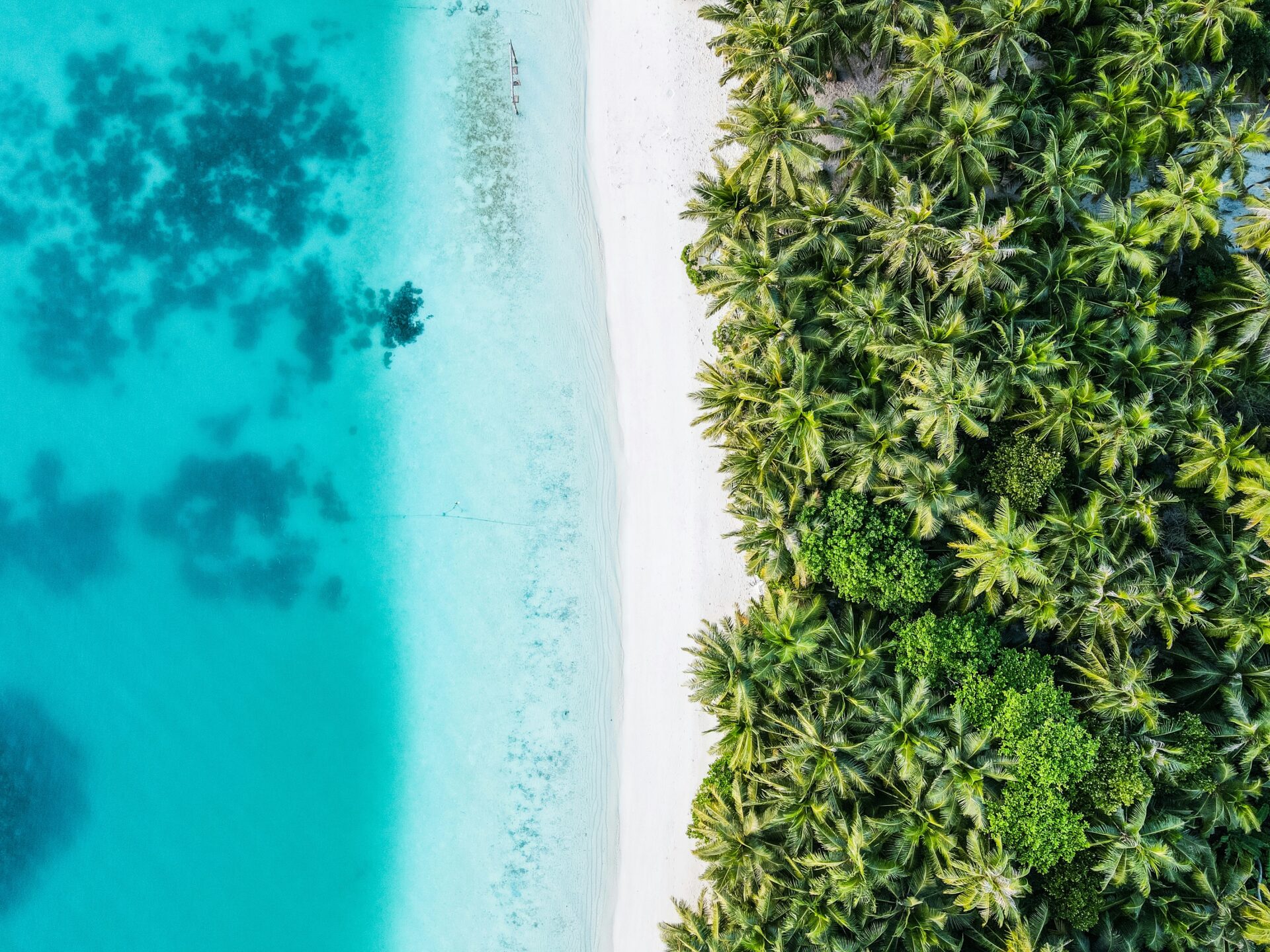
‘Luxury hospitality isn’t just about service; it’s a powerful platform to inspire change’ adds Nuria. ‘At OZEN LIFE MAADHOO, I can not only care for the reef but also share its wonders with guests, turning a holiday into a transformative encounter with nature.’
That vision is already coming to life across the island. Solar panels glint on rooftops, desalination plants reduce bottled water, and chefs source more ingredients locally to cut food miles. Guests are invited to plant coral frames, join reef-safe snorkelling tours, and even take part in beach clean-ups.
Regenerative in Action: OZEN LIFE MAADHOO Case Study
What makes regenerative tourism different from the overused ‘eco’ label is its focus on actively restoring ecosystems. One striking example comes from OZEN LIFE MAADHOO, where reef restoration projects have transformed degraded areas into thriving habitats. Coral frames have been installed and resilient, home-grown fragments carefully transplanted.
‘It’s been a labour of love,’ Núria says. ‘We installed coral frames and nurtured resilient, home-grown coral fragments, carefully transplanting them onto degraded areas. The results have been extraordinary. We’ve seen a 40 per cent increase in coral cover around the island, and with it, the return of different species of fauna. It’s a vibrant, thriving ecosystem again, proof that with patience and discipline, we can reverse damage.’
The resort’s innovations don’t stop at the reef. To tackle the Maldives’ dependence on imported diesel for power, OZEN has introduced floating solar panels, a pioneering renewable energy system that sits on the water’s surface, generating clean electricity without taking up precious land. At the same time, its hydroponic garden grows fresh greens without soil, using nutrient-rich water to supply the resort’s kitchens and cut down on food miles.
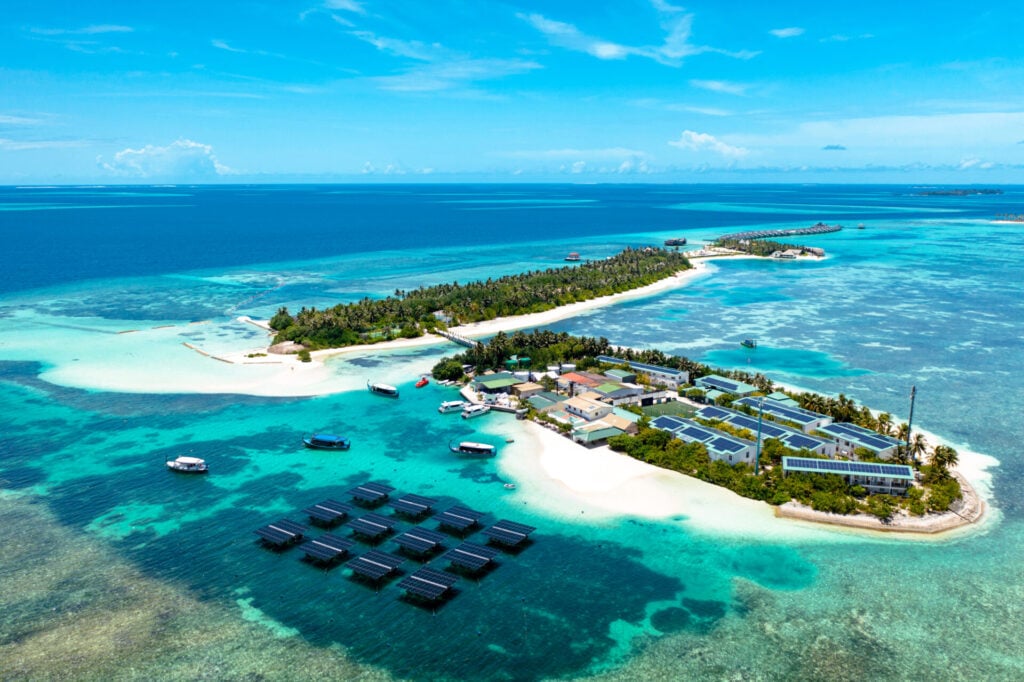
‘The floating solar panels are transformative to island nations like the Maldives’ she adds. ‘They significantly reduce our diesel consumption. But personally, the hydroponic garden resonates most. It supplies our kitchens with fresh greens, reducing food miles. It’s a powerful symbol of how luxury can be both indulgent and responsible.’
Waste management is another priority. Instead of allowing rubbish to pile up or be shipped to other islands, the resort has created closed-loop systems that turn by-products into resources.
‘True conservation is circular,’ Núria adds. ‘Our composting systems turn kitchen waste into fertiliser for our gardens, reducing runoff into the ocean. We’ve eliminated single-use plastics entirely, and our glass crusher repurposes bottles into construction material. It’s about ensuring that nothing we use on land becomes a threat to the sea. All waste management initiatives reduce our carbon footprint, waste output, and nutrient runoff, all of which directly affect our marine ecosystem.’
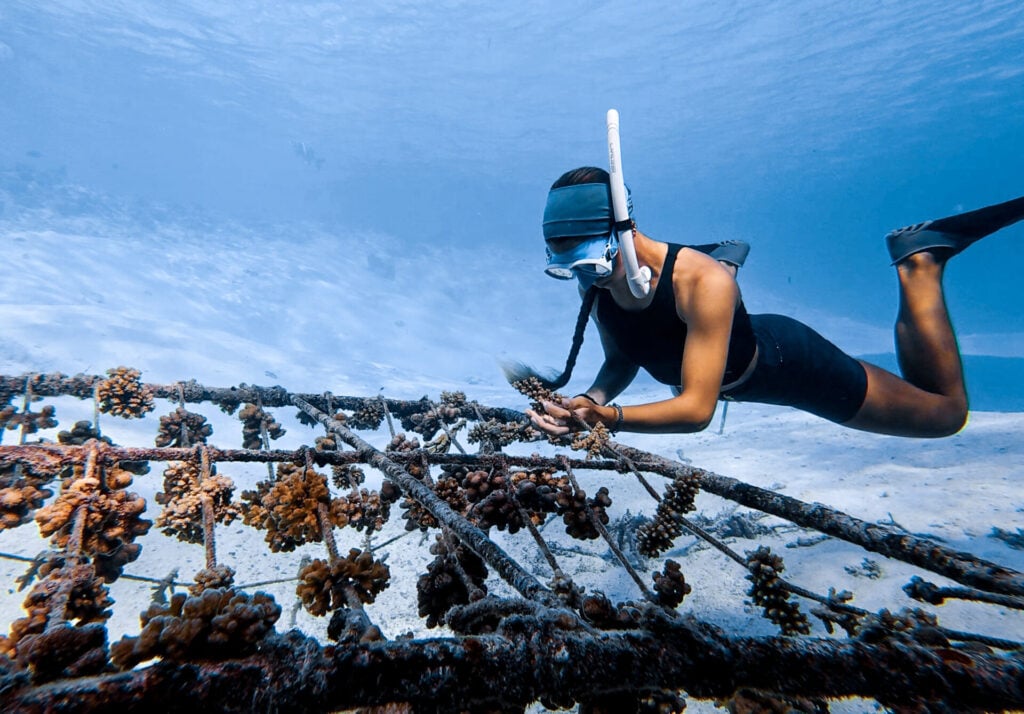
Guests play a role too. Every coral fragment planted, every reef-safe sunscreen applied adds up to tangible impact. The magic of the Maldives, those postcard-perfect lagoons and coral gardens, depends on collective action.
‘Here at Maadhoo island, all guests can adopt a coral frame, join guided reef snorkelling, or attend talks on marine life weekly,’ explains Núria. ‘It’s about creating emotional connection, when a guest names a coral and follows its progress, they become an ambassador for the ocean. That’s where real change begins.’
Blueprint for Survival
What happens in the Maldives matters far beyond its atolls. As one of the world’s lowest-lying nations, it has become a bellwether for climate change, showing both the risks of inaction and the possibilities of resilience.
‘Resorts must be pioneers, proof that tourism and regeneration can coexist,’ says Núria. ‘We’re not just offering a beautiful escape; we’re modelling a sustainable future for the Maldives. If we can operate successfully with a lighter footprint, we inspire entire communities and set a new standard for the industry.’
It is a race against time. Coral takes years to grow, but bleaching can kill it in days. Plastic can be produced in seconds, yet remain in the ocean for centuries.
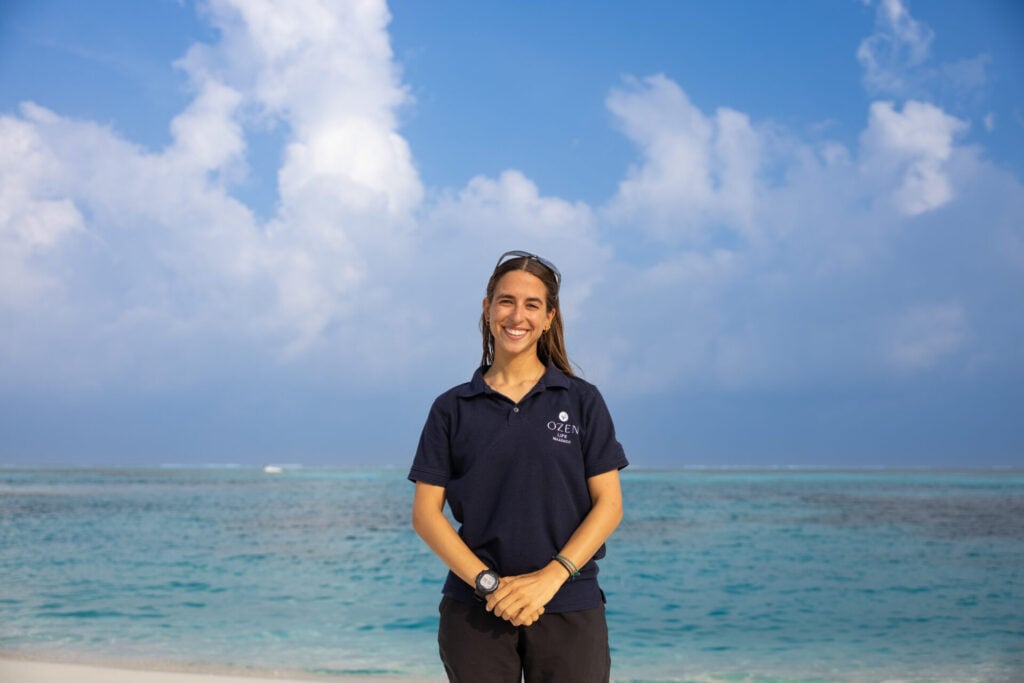
The Maldives remains a dream destination, but its future depends on a collective shift from tourists, resorts, governments and global citizens. Regenerative tourism offers a blueprint for survival, proving that luxury and responsibility are not opposites but natural partners.
The stakes could not be higher. Paradise is under threat, but it is not lost. Not yet. The Maldives can still thrive as a beacon of what happens when travel gives back more than it takes.
To learn more visit OZEN LIFE MAADHOO

